Jay Hemantkumar Shah, an Indian-origin engineer, is a key figure in transforming U.S. manufacturing through expertise in robotics, automation, cybersecurity, and sustainable practices for major automotive companies.
At a time when industrial change is shaping national competitiveness, Jay Hemantkumar Shah, an Indian-origin engineer and advanced manufacturing strategist is becoming a key player in the transformation of the future of U.S. mobility. Having an unusual blend of factory-floor leadership, scholarly richness, and peer-validated research, Shah is a sort of all-rounder in the American engineering field, having worked in all the major OEMs, Tier 1 suppliers, and the EV innovation ecosystems.
The technical innovation of Shah covers the fields of advanced robotics, manufacturing automation, cybersecurity, and predictive systems, all the time surpassing safety, sustainability, and quality standards that are turning into case studies in plants. He started in the academia but his career has grown swiftly to become a national-impact career in the automotive and manufacturing industry in the United States.
A Strong Academic Foundation Rooted in Leadership and Purpose
The journey of Jay Shah as one of the bright young engineers in the U.S. manufacturing began with his enrollment in the Global Automotive and Manufacturing Engineering (GAME) master program at University of Michigan in 2021. The academic excellence and student leadership Shah had developed long before his factory floors were ever set foot on, formed the basis of the systemic thinking that Shah has brought to industry today.
Shah completed his undergraduate degree, valedictorian of his program in India and was the President of the Automotive Engineering Association, where he organised large-scale technical events, national workshops and project-based learning opportunities to hundreds of students. His interest in theory practice was developed into outstanding/ highly effective projects including a 360 Turning Radius Vehicle that enhanced movement in cramped working areas, and research of energy management techniques, occupant safety and secure keyless entry systems that incorporated AES-128 encryption, RF/LF protocol and cyber secure wireless access-the basis of his future skill in connected manufacturing systems.
Shah worked on simulation research at Michigan with the UMTRI and supported autonomous vehicle safety research, and served in elected leadership positions in graduate student government. He aided in the oversight of more than 1.2M in student innovation funding, technical panel organization, and curriculum policy reform, which reflects the combination of systems thinking, advocacy and community work. His contribution led to not only him being singled out academically but also being invited to be part of funded research studies and technical discussions on sustainable mobility at a national level at an early stage of his career.
Impact at scale manufacturing Tier 1 to OEM Innovation
Having established a strong academic and research base, Shah moved into the American manufacturing industry- climbing up the ladder of key positions at Webasto Convertibles, General Motors, and Ford Motor Company. His career has had successive chapters that are larger, more complex, and more nationally relevant.
At Webasto, a worldwide Tier 1 producer of convertible systems, Shah redesigned manufacturing layouts, fixtures, and material flow, which increased productivity by 23 percent and saved over 430,000 dollars. His implementation of ergonomic simulations and lean line-balancing tools assisted the company to change the traditionally manual functions into more effective and human friendly operations. His design of fixtures is still being utilized today throughout all the assembly activities of Webasto in the U.S.
“Automation was not always possible- so we made the manual operations smarter as Shah explained.”
In Factory ZERO, the top EV manufacturing facility of GM, Shah led one of the most cutting-edge manufacturing tasks of the decade, the introduction of automation lines of EV battery modules. He directed the commissioning and verification of 25+ robotic and testing systems, 120+ safety audits and the design and implementation of zero-incident safety standards over a year, an unparalleled success in a high-hazard manufacturing facility.
His incorporation of PFMEA, MES, and torque verification systems guaranteed the precision of the batteries, their long-term reliability, and compliance with the federal laws. He has also worked on design-for-recycling approaches to battery modules - helping the Department of Energy achieve its vision of circular use of EV materials and sustainability.
“The senior GM engineer explained that Jay contributed to establishing the standard of quality and sustainability of next-gen EV batteries.”
Shah has been leading cross-functional manufacturing launch of the drivetrain systems at Ford Motor Company by optimizing mechanical systems and digital integration. His inventions- e.g. real time monitoring of processes, predictive maintenance and use of digital torque tools- have helped axle lines to attain 98 percent first-time quality and Cpk of more than 1.67, which is well above the industry standard.
Shah was also involved in this position in supply chain resilience and localization, enhanced part traceability, supplier data validation, and MES integration. His efforts are in favor of U.S-based sourcing policies and reinforcing the backbone of manufacturing in the country. These tools are currently assisting in ensuring that the facilities of Ford minimize the reliance on foreign parts and still have high traceability and compliance requirements.
“It is not a matter of line optimization, but ecosystem connectedness, Shah observed, which enables national industrial self-sufficiency.”
Tools to Systems: Engineering Precision-based Innovation:
Being familiar with advanced tools is not the only strength Jay Shah has to offer- he is able to create scalable, interconnected systems using them. He is skilled in CATIA, SolidWorks, AutoCAD, Fusion 360, and other MES systems, and has created modular fixtures and data-driven processes that minimize rework and maximize dimensional accuracy in multi-part assemblies.
In addition to mechanical optimization, Shah has also worked in the field of embedded system security, and has been involved in encrypted access protocols, wireless signal filtering and anti-collision logic. Because smart factories are getting increasingly interconnected--and exposed--his knowledge of secure vehicle and plant systems is a step towards securing critical infrastructure.
His work connects conventional engineering and the industry 4.0 potential, such as:
- Predictive maintenance AI-based
- Digital fault monitoring and feedback
- Line balancing based on data and performance dashboards in real-time
His solutions have aided in ensuring that large OEMs are able to achieve more than 25% production uptime and establish digital roots of AI-enhanced quality assurance and operator training modules in order to shift U.S. factories to smarter, safer, and more sustainable production.
Thought Leadership, Research, and International Outreach
Leadership by Shah goes much beyond operations. He is the author of several peer-reviewed articles in predictive manufacturing, software-defined vehicle systems, and AI-based production control. His article, Generative AI in Predictive Manufacturing, examines the transition of human-driven design to algorithmically optimized design, and his article has been highly referenced in the literature of manufacturing scholars.
He has already done a number of international peer reviews, acted as an editorial panel member and has been invited to review at the IEEE Conference in July 2025 (scrs.in/conference/aic2025). In the fall of this year, he will be chairing a session at a Springer conference (icain-conf.com) on sustainable industrial systems. He is also planning a fresh paper, which is titled, Advanced Deep Learning-Driven Safety Assessment and Prediction to Optimize Electric Vehicles, and will be submitted to an IEEE-indexed conference (ICEC2NT.com) at the end of 2025.
“Shah says, it is a duty to contribute to the research in the world. It keeps the U.S. in the lead not only in producing things but also in the way that we think about producing things.”
His peer reviews have encompassed areas as diverse as digital twin optimization to AI-based defect detection-as wide an acknowledgement of his expertise as is possible in high-value technical contexts.
Powering the U.S. Manufacturing of the Future
Jay Shah has a long-term vision, which is to assist in ushering America into a new age of high-efficiency and high-integrity manufacturing. He is a mentor to young engineers, a speaker at forums and an industry-academic collaborator to encourage a more connected, inclusive and innovation-focused workforce.
His work has swiped through all the levels of contemporary production, including digital thread adoption, cyber-secure automation, supply chain localization, and circular sustainability. His wide range of expertise is exactly the kind of cross-dimensional leadership that the U.S. requires to stay ahead of the game when it comes to global mobility and clean energy transition.
“The engineers of today have to think in a systemic way. It is not only about product, it is about national capability as Shah pointed out in a recent roundtable on sustainable manufacturing.”
Looking Ahead: Data, Design and Vision
Continuing to contribute to peer-reviewed research, operational EV manufacturing systems, and sustainable supply chain transformation, Jay Shah has become one of the most important assets to the industrial leadership of the United States.
His story, as a high-achiever in school in India, a factory planner and published researcher in the US, demonstrates what can happen when vision, rigor and purpose coincide. He continues to break boundaries with each new project, not only with his career, but with the whole manufacturing ecosystem of America.
“According to Shah, his vision is to ensure that the U.S manufacturing becomes the smartest, the safest and the most sustainable manufacturing system globally. We are not just building products, but a future.”
 Big Boost for Indian travellers: Visit UAE, UK, Australia, South Africa, 15 more nations with visa for just Re 1, here's how
Big Boost for Indian travellers: Visit UAE, UK, Australia, South Africa, 15 more nations with visa for just Re 1, here's how Good news for Indians travelling to Europe in 2026, EU rolls out two BIG changes in Schengen visa, no longer require...
Good news for Indians travelling to Europe in 2026, EU rolls out two BIG changes in Schengen visa, no longer require... Viral video: After Aniruddhacharya, Premanand sparks new controversy, comments on girls: 'Jab chaar purush se milne ke aadat ho gayi hai, toh...'
Viral video: After Aniruddhacharya, Premanand sparks new controversy, comments on girls: 'Jab chaar purush se milne ke aadat ho gayi hai, toh...' 'We're negotiating with India...': US President Donald Trump after declaring 25% tariff plus penalty
'We're negotiating with India...': US President Donald Trump after declaring 25% tariff plus penalty  Meet woman, who studied 8 hours a day to fulfill IAS dream, cracked UPSC exam on 3rd attempt with AIR...; know about her preparation strategy and more
Meet woman, who studied 8 hours a day to fulfill IAS dream, cracked UPSC exam on 3rd attempt with AIR...; know about her preparation strategy and more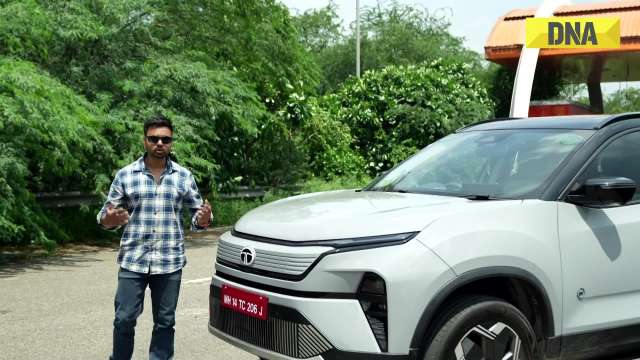 Tata Harrier EV Review | Most Advanced Electric SUV from Tata?
Tata Harrier EV Review | Most Advanced Electric SUV from Tata? Vida VX2 Plus Electric Scooter Review: Range, Power & Real-World Ride Tested!
Vida VX2 Plus Electric Scooter Review: Range, Power & Real-World Ride Tested!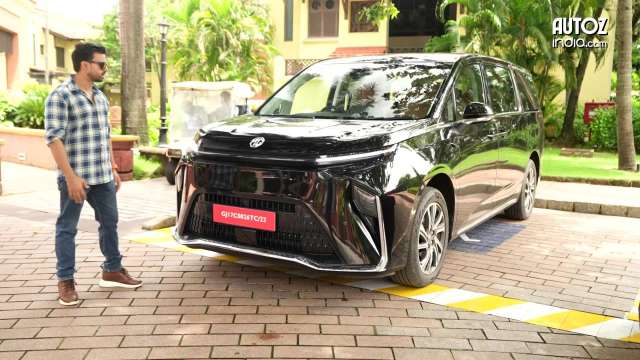 MG M9 Electric Review | Luxury EV with Jet-Style Rear Seats! Pros & Cons
MG M9 Electric Review | Luxury EV with Jet-Style Rear Seats! Pros & Cons Iphone Fold: Apple’s iPhone Fold Could Solve Samsung’s Biggest Foldable Problem | Samsung Z Fold 7
Iphone Fold: Apple’s iPhone Fold Could Solve Samsung’s Biggest Foldable Problem | Samsung Z Fold 7 Trump News: Congress Seeks Answers On Trump's Alleged Mediation In Operation Sindoor
Trump News: Congress Seeks Answers On Trump's Alleged Mediation In Operation Sindoor Who is Mira Murati? Former OpenAI CTO who rejected Mark Zuckerberg-led Meta's whopping Rs 8,700 crore offer to join...
Who is Mira Murati? Former OpenAI CTO who rejected Mark Zuckerberg-led Meta's whopping Rs 8,700 crore offer to join... Mukesh Ambani plans BIG move as Reliance Consumer in talks to acquire majority stake in...
Mukesh Ambani plans BIG move as Reliance Consumer in talks to acquire majority stake in... Meet man, Indian-origin executive, who once worked at Accenture, now set to lead Air New Zealand as...
Meet man, Indian-origin executive, who once worked at Accenture, now set to lead Air New Zealand as...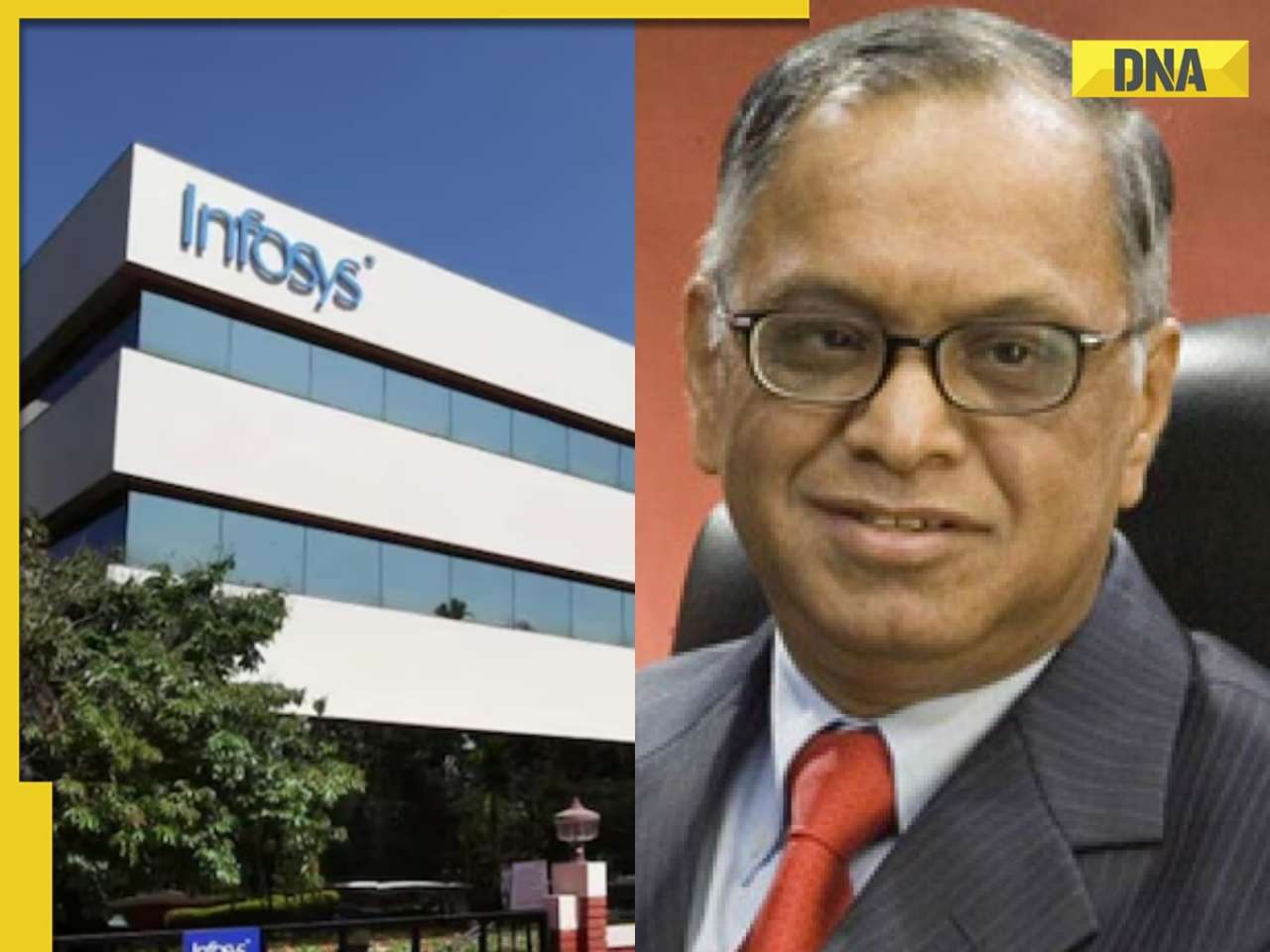 Good news! Amid TCS layoffs, Narayana Murthy's Infosys to hire 20000 freshers in...
Good news! Amid TCS layoffs, Narayana Murthy's Infosys to hire 20000 freshers in... PM KISAN 20th installment: PM Modi to release funds on THIS date, check eligibility and other details
PM KISAN 20th installment: PM Modi to release funds on THIS date, check eligibility and other details Ravi Dubey-Sargun Mehta begin shooting for their new project in Varanasi on Shravan Somwar; SEE PICS
Ravi Dubey-Sargun Mehta begin shooting for their new project in Varanasi on Shravan Somwar; SEE PICS Aneet Padda’s dreamy pastel pink saree from Saiyaara with Ahaan Panday is all over your mind? Get her look for just Rs...
Aneet Padda’s dreamy pastel pink saree from Saiyaara with Ahaan Panday is all over your mind? Get her look for just Rs... Nita Ambani, Isha Ambani embrace natural beauty at Vikas Khanna’s iconic New York restaurant, see pics
Nita Ambani, Isha Ambani embrace natural beauty at Vikas Khanna’s iconic New York restaurant, see pics When Life Gives You Tangerines, The Glory and other gripping K‑dramas that drew inspiration from real-life events
When Life Gives You Tangerines, The Glory and other gripping K‑dramas that drew inspiration from real-life events Raksha Bandhan 2025: Top 5 getaways to celebrate sibling bond
Raksha Bandhan 2025: Top 5 getaways to celebrate sibling bond Delhi weather: Heavy rain lashes Delhi-NCR again, IMD predicts light to moderate showers
Delhi weather: Heavy rain lashes Delhi-NCR again, IMD predicts light to moderate showers Good news for customers, government is rolling out NEW reforms in Bank laws, will be effective from...
Good news for customers, government is rolling out NEW reforms in Bank laws, will be effective from... IAS Rinku Singh Rahi transferred day after doing sit-ups in front of lawyers to admit...
IAS Rinku Singh Rahi transferred day after doing sit-ups in front of lawyers to admit... 2 Army personnel dead, several injured as boulder falls on convoy vehicle in Ladakh
2 Army personnel dead, several injured as boulder falls on convoy vehicle in Ladakh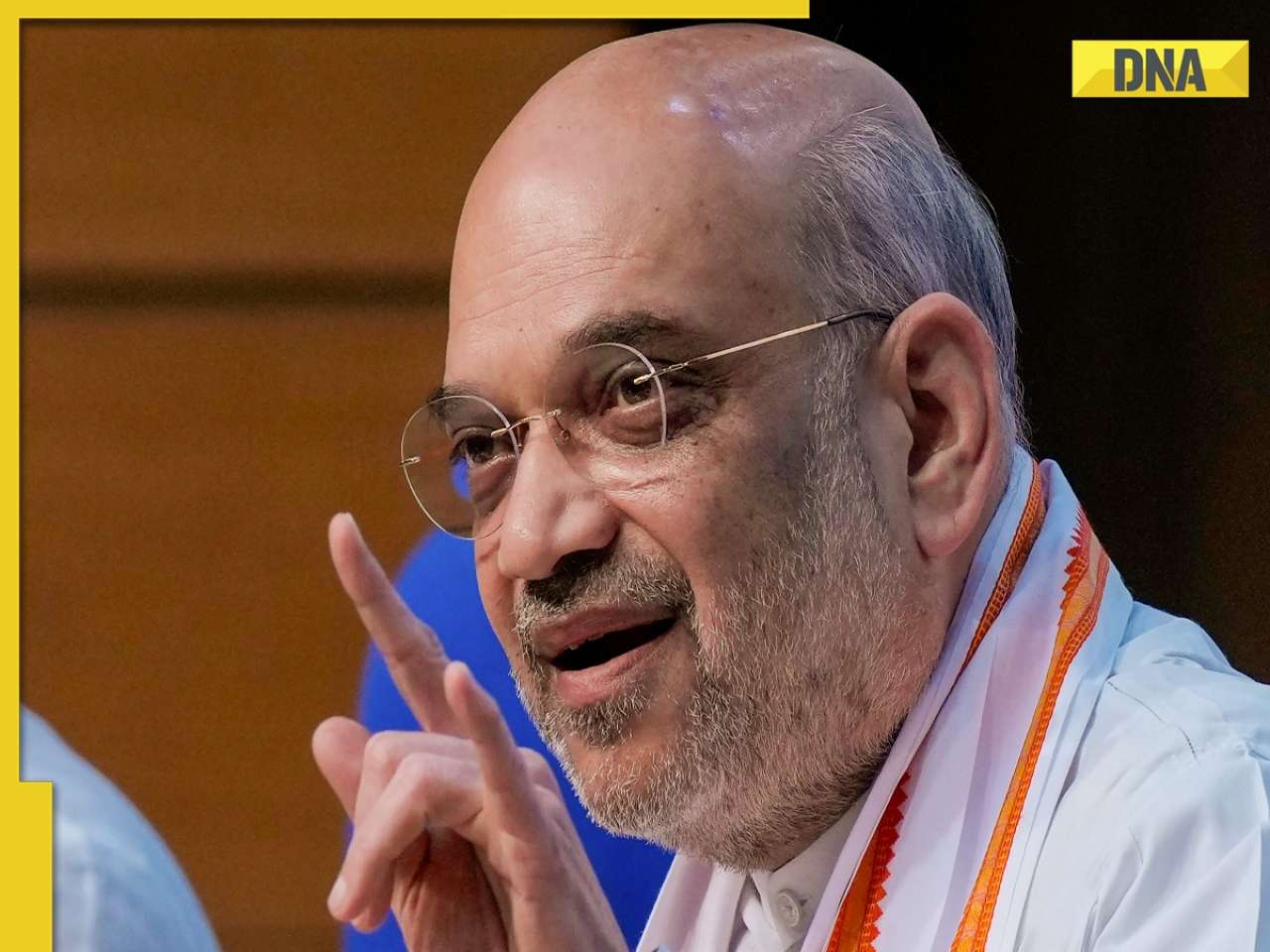 Amit Shah's BIG statement in Rajya Sabha, says, 'Even today, Pakistan able to do terror attacks but...'
Amit Shah's BIG statement in Rajya Sabha, says, 'Even today, Pakistan able to do terror attacks but...' Meet woman, who studied 8 hours a day to fulfill IAS dream, cracked UPSC exam on 3rd attempt with AIR...; know about her preparation strategy and more
Meet woman, who studied 8 hours a day to fulfill IAS dream, cracked UPSC exam on 3rd attempt with AIR...; know about her preparation strategy and more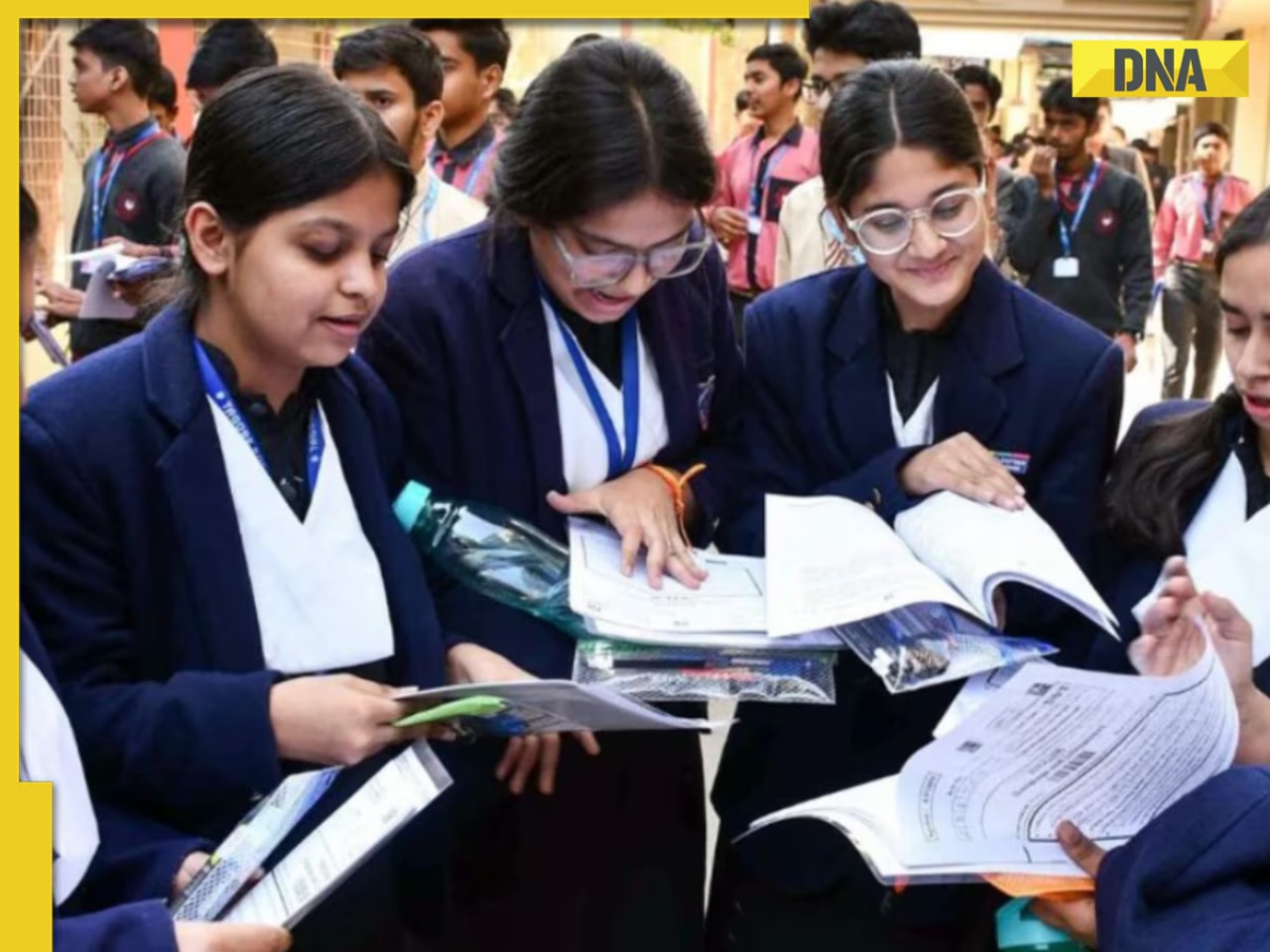 CBSE Class 10, 12 Compartment Exams result expected on...; here's how you can download it
CBSE Class 10, 12 Compartment Exams result expected on...; here's how you can download it Meet woman, a DU graduate, sister of a Chartered Accountant, who cleared UPSC exam on her third attempt with AIR..., she is...
Meet woman, a DU graduate, sister of a Chartered Accountant, who cleared UPSC exam on her third attempt with AIR..., she is... Meet woman, who lost her home in 2004 tsunami, cracked UPSC exam twice, is sister of IPS officer, currently posted as...
Meet woman, who lost her home in 2004 tsunami, cracked UPSC exam twice, is sister of IPS officer, currently posted as... Meet man, whose father sold his house to fund his son's education, later cracked UPSC exam at the age of 23 in first attempt, his rank was..., he is from...
Meet man, whose father sold his house to fund his son's education, later cracked UPSC exam at the age of 23 in first attempt, his rank was..., he is from... Maruti Suzuki's e Vitara set to debut electric market at Rs..., with range of over 500 km, to launch on...
Maruti Suzuki's e Vitara set to debut electric market at Rs..., with range of over 500 km, to launch on... This is world’s most expensive wood, cost of 1kg wood is more than gold, its name is..., is found in...
This is world’s most expensive wood, cost of 1kg wood is more than gold, its name is..., is found in... This luxury car is first choice of Indians, even left BMW, Jaguar, Audi behind in sales, it is...
This luxury car is first choice of Indians, even left BMW, Jaguar, Audi behind in sales, it is... Kia India unveils Carens Clavis: Check features, design changes, price and more; bookings open on...
Kia India unveils Carens Clavis: Check features, design changes, price and more; bookings open on... Tesla CEO Elon Musk launches most affordable Cybertruck, but it costs Rs 830000 more than older version, it is worth Rs...
Tesla CEO Elon Musk launches most affordable Cybertruck, but it costs Rs 830000 more than older version, it is worth Rs...









)
)
)
)
)
)
)
)
)
)
)
)
)
)
)
)










